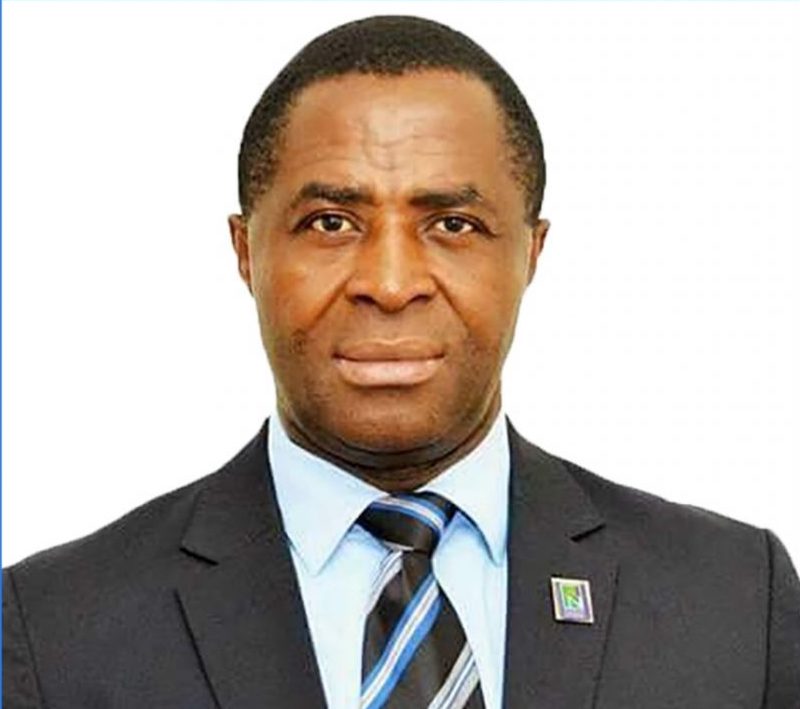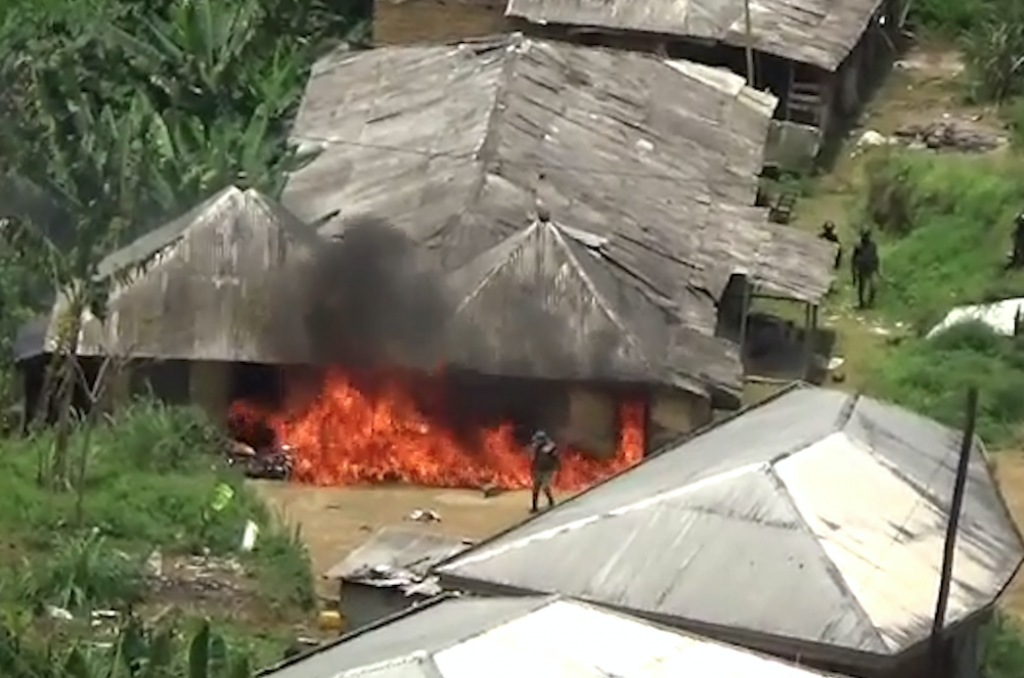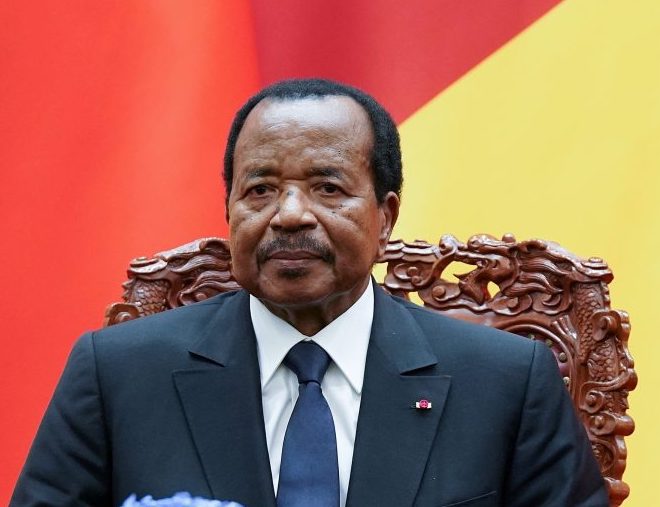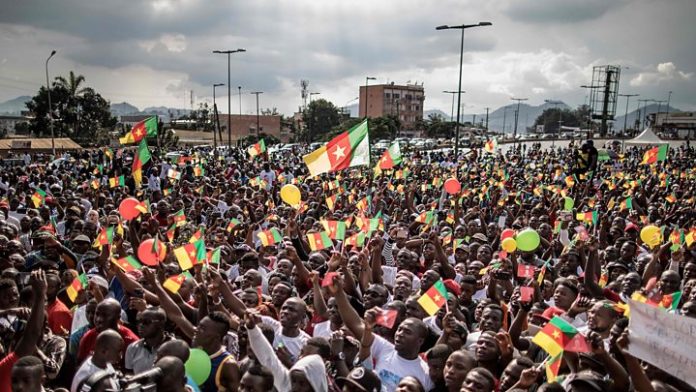Ethnic War In The New Age
In the mid-2000s while at the University studying the civil wars of West African countries, I was fascinated by their cultural perspective. Secret societies, magic and lust for wealth by rebel commanders were all very ‘sexy’ to me. By 2010s these kinds of wars seemed to vanquish and the focus was more on the religious aspect of war mostly in the Middle East and North Africa.
The separatist rebels in Cameroon offer us a chance to re-imagine the early days of RUF in Sierra Leone when they were talking about fighting for the people and the country.
At the time no journalist or researcher could predict the suffering, pain, and destruction they brought to their country. The so-called Anglophone crisis in Cameroon has no real ethnic basis; Cameroon has an extremely heterogeneous population, consisting of approximately 250 ethnic groups. Anglophones and Francophones are not separated into ethnic lines. The separatist is concentrating the narrative upon European colonialism so to claim that there is a basis for a separate political entity.
No wonder the Anglophone region is very rich in Cocoa, one of the top producing areas of the world. According to separatist rebel leaders, 60% of Cameroon’s GDP is produced in the two Anglophone regions while the profits go to the capital city and the Francophone elite. The separatists use illegal trade routes via Nigeria to sell resources and buy weapons for their struggle. They tax the civilian population in the two Anglophone areas while at the same time abusing them. They also gain tremendous financial aid from the Diaspora which has launched a social media campaign promoting fundraising.
According to data from the UN arms trade treaty, Cameroon has been one of the largest recipients of Serbian weapons since 2013. Italians sold 35 million to Cameroon in 2017 for automatic weapons, torpedoes, bombs, rockets, missiles, and electronic equipment.
Rely on strategic connections in former Soviet State for a steady supply of arms with transit via UAE or Cote d Ivoire. The research found suspect aviation companies transferring weapons to hot regions with connections to Cameroon and Sao Tome and Principe officials. Government officials involved with the then state-owned National Airways of Cameroon linked with an airborne illicit arms trade network led and staffed by individuals from the Soviet Union obtained commercial forestry and timber exporting license. As the timber trade in Africa is highly criminalized it is an ideal way to use it for illicit arms.
Known as AmbaCoin, 20,082 of the Ambazonian crypto bond had already been bought, out of 100,000,000 on pre-sale as of Nov. 10. One AmbaCoin sells for 25 cents (circa 140 CFA franc) and the main initial coin offering of the crypto-currency is scheduled for Dec. 24. It is said to be backed by the “rich natural resources” of the breakaway region.
The AmbaCoin was conceived and built by a group of anonymous Anglophone separatist scholars, technocrats and developers. But it has gained the support of frontline secessionists and separatist movements.

Ambazonian fighters have put their faith in odeshi, a form of psychological armor that draws on elements of local witchcraft. Atrocities are committed daily by separatists in the region they claim to fight for. Since 2017, armed separatists in the Anglophone North-West and South-West regions have kidnapped hundreds of people, including students and clergy, amid growing calls for the Anglophone regions to secede.
Facebook user posts a picture of the decapitated body of a Cameroonian policeman lying in a gutter and said the image gave him joy. Separatist spokesman, Ivo Tapang applauded the killing of two Cameroonian soldiers and linked it to a website raising funds for guns, ammunition and grenade launchers.

Most people see the armed groups as predators and accuse them of living at their expense. Separatists did not allow people to vote, they burned houses, killed civilians and force them to boycott educational activities – including closing down schools and harassing students and teachers alike.
Cameroon’s reality is also to blame. President Paul Biya of Cameroon is currently the longest-ruling non-royal leader in the world and the oldest ruler in Africa. Its regime is supported by France, which supplies it with weapons and trains its forces. France is the leading foreign investor, ahead of the United States. One hundred and five French subsidiaries are located in all key sectors (oil, timber, construction, mobile telephony, transport, banking, insurance, etc.) Government steals election after election and corruption are rampant in the country.

There is no dialogue between Yaoundé and the Separatists. The government counts on military victory refuse to discuss the form of the state and any real autonomy. Taking into consideration the important relation of Cameroon with the US and France, he is likely to get it. It is important to note that the Cameroonian government is fighting also another war against Boko Haram in the North while trying to stop instability from the neighboring Central African Republic spreading in Cameroon.
Many allegations of indiscriminate killing, burning of villages, rape and humiliation of English-speaking citizens carried out by the BIR (Bataillon d’Intervention Rapide) have been made along with supporting video footage.
Currently, the future of the country seems bleak. Separatists will profit from the undemocratic nature and history of Cameroon. Moderate voices from both sides need to be heard; autonomy and the Cameroonian Constitution need to be respected. Separatist commanders must be treated as criminals. The international community should not engage with Separatists leaders and should not make them recipients of aid – which will incentivize other criminals to portray themselves as nationalist and freedom fighters. The continent has paid a high price for the irresponsible aid policies. In fact, it’s extremely worrying that large scale criminality lies in a zone between Cameroon- Central African Republic – Democratic Republic of Congo and South Sudan.
The views expressed in this article are the author’s own and do not necessarily reflect African Post Online editorial stance.

He is a researcher and has traveled throughout Western, Central, Eastern Africa, and Greece. He has covered the civil war in Libya and the revolution in Egypt (2011) for Think Africa Press. He has taught Conflict Resolution and English. Menelaos Agaloglou has a BA degree in Politics and Business at Queen Mary, University of London, and MSc in Globalization and Development at the School of Oriental and African Studies (SOAS), University of London.















